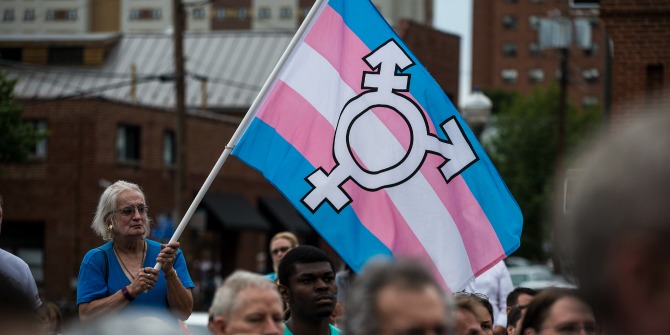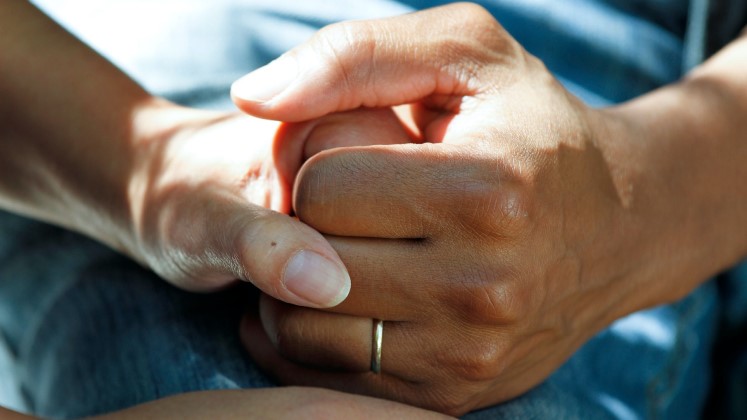 In the days since Sunday’s tragic mass shooting at an LGBTQ+ nightclub in Orlando, Florida, it has come to light that the attacker who killed 49 people that night, Omar Mateen, may himself have been part of the LGBTQ+ community. Diana Popescu writes that Mateen’s participation in the LGBTQ+ community both challenges and entrenches the issue’s framing as both an attack against an oppressed minority group and one of the US vs ISIL conflict.
In the days since Sunday’s tragic mass shooting at an LGBTQ+ nightclub in Orlando, Florida, it has come to light that the attacker who killed 49 people that night, Omar Mateen, may himself have been part of the LGBTQ+ community. Diana Popescu writes that Mateen’s participation in the LGBTQ+ community both challenges and entrenches the issue’s framing as both an attack against an oppressed minority group and one of the US vs ISIL conflict.
In the early hours of Sunday June 12 2016, 29 year old Omar Mateen, an American of Afghan descent claiming to be acting on behalf of ISIL, opened fire at the Pulse LGBT+ club in Orlando, where he was apparently a regular. The attack killed 49 people on the spot and wounded another 53 of the 300 people-strong crowd attending the club’s Latino evening. These facts are a great cause of grief and concern, joining the tragic and absurd list of terrorist attacks recently perpetrated in the Western world by (allegedly) ISIL supporters.
However, agreement over what these facts mean seems much harder to reach in the case of Orlando compared to other terrorist attacks. In the US, Democrats and Republicans differ significantly in how they frame the events. On one side, Republicans tend to present the issue in terms of who the perpetrator was (an ISIL supporter), the nature of the act (an act of terrorism), and the external nature of the threat (“US vs. ISIL”). On the other, Democrats tend to focus on the identity of the victims (members of the LGBT+ community), and domestic enablers of the attack (homophobic discourse and lax gun control laws). In the UK, a disagreement culminating in Owen Jones’s leaving the set of Sky News erupted when Jones argued that the mass shooting should be framed as a terrorist attack specifically targeting LGBT+ people, while the host of the show insisted that it was an attack where people were targeted simply for having a good time regardless of their sexuality, much like the November 2015 Paris attacks.
The difference in the way the attack is framed is no doubt political. This is easy to see in the case of the camp that specifically identifies the victims as belonging to an oppressed minority, and focuses on the role gun control laws played in the attack. Focusing on the internal enablers of the attack rather than its alleged external connection to ISIL, the US Human Rights Campaign Chair, Chad Griffin noted that:
[t]he maniac who did this was somehow conditioned to believe that LGBT people deserve to be massacred. And he wasn’t just hearing those messages from ISIL. He was hearing it from political and radical anti-LGBT extremists here in our own country. Every time we see legislation that puts a target on the back of LGBT people; every time a preacher spews hate from the pulpit; every time a county clerk says that acknowledging our relationships violates her “religious beliefs”—it sends a signal that LGBT people should be treated differently, and worse.
The killer was, moreover, able to act on these beliefs as a result of the U.S’s lax gun control measures. In her reaction to the attack, Hillary Clinton argued:
It’s essential that we stop terrorists from getting the tools they need to carry out the attacks, and that is especially true when it comes to assault weapons like those used in Orlando and San Bernadino.
Mid-way through a discourse commencing with the words “today is not a day for politics”, Clinton argued that if someone is on FBI’s watch list (as Mateen was) they should not be allowed to buy weapons.
Credit: Governor Tom Wolf (Flickr, CC-BY-2.0)
Less trivially, the attempt to frame the attack in apolitical terms subversively removes the political relevance of the victims’ identity and the socio-political context of the attack, meaning that the status quo on both issues is maintained. Focusing on the shooter’s ethnicity while asymmetrically disregarding the identity issues intrinsic to the fact that the shooting took place at an LGBT club on its Latino night is not only a tool to further anti-Muslim rhetoric but also a tool to take attention away from other aspects regarding identity. During the confrontation with Owen Jones on whether the attack in Orlando should be seen as an attack on human beings in general or one specifically targeting LGBT+ people, Mark Longhurst argued the loss of life is tragic regardless of sexual orientation, refusing to make the victims’ sexuality focal. Yet, this difference-blind approach sidesteps the irreducibly homophobic aspect of the issues faced by LGBT+ minorities, including forms of symbolic, political and physical violence and/or abuse of which the current attack may be the most terrible one to date. This very blindness and silence is flagged in the literature on the politics of difference (Iris Young, Charles Taylor) as a warning that an allegedly ‘neutral’ approach may be, in fact, complicit in furthering existing forms of inequitable treatment against minority groups.
The fact that Mateen was himself a regular of the LGBT+ club, a user of a gay dating app, and someone described by his ex-wife as having gay tendencies both challenges and entrenches these opposing political positions. To those intent on ignoring sexual orientation and focusing on other features of the attack, the fact that sexual orientation was possibly shared between the victims and the perpetrator strengthens the argument that the issue of sexuality is not the focus. If the attacker was himself a member of the community which he opened fire against, the reason for attack could more easily be explained by reference to other aspects of the case: the Afghan origin, the ISIL connection, aggressiveness, or as Julia Hartley-Brewer put it on the Sky News set on Sunday evening, “being bad and mad”.
To those insisting the attack is homophobic in nature, the discovery that Mateen may have been gay would not cancel out, but instead further nuance its specific homophobic nature; it would not refute, but enrich the narrative about the importance of sexuality and the diversity and complexity of what it means to have a minority sexual orientation. Nothing would fundamentally change, for instance, in Griffin’s reaction that “One is taught to hate”, except the startling discovery that if the hatred is strong enough, it will infect the members of the very community that is most susceptible to suffer from it.
However, the possibility that the shooter was gay does challenge the tendency both these camps have to collapse some of the divisions focal to their positions. The fact that the killer is both an American who was himself enjoying the freedoms (including gun legislation) granted to people regardless of sexual orientation as well as an ISIL supporter should challenge the simplistic binary of “US vs. ISIL”. The poverty of the simplifying way in which we frame such horrendous acts has emerged in previous terrorist attacks, when looking at the profiles of those who have perpetrated them. What we invariably find with (by now irrational) great surprise is that they are not the caricatures of indiscriminate evil and exotic difference we somehow expect. The view that terrorism is an essentially external threat, inflicted upon Western societies from the outside, has been coming undone at the margins for a while. The Orlando shooting reinforces this view.
On the other hand, if it turns out Omar Mateen was gay and that he targeted Pulse because it is an LGBT+ club, the case becomes one where a gay person adopted homophobic discourse and perpetrated the worst anti-LGBT+ attack for generations against members of his own community. This should challenge the LGBT+ vs. homophobes rhetoric of the opposing, liberal camp. While they are right to insist on the importance of homophobia and to challenge the simplistic characterizations of the attacker as “lunatic”, “mad and bad” etc., (as Owen Jones did on the Sky News set), the possibility of an extremist homophobe who is himself gay shows that homophobia and having a minority sexual orientation are not necessarily mutually exclusive. The possibility of an enemy within is all the more painful for a group described as a community, and who has love as a primordial value. It is, then, understandable to see resistance to the conclusion Mateen may have been gay himself, or new distinctions between being gay and being a true member of the LGBT+ community. But if we see the new developments as pointing to this conclusion, then the discovery that the LGBT+ community can itself be permeated by anti-LGBT+ discourse to this extent is tragic evidence of the effects such a discourse can have in an international and domestic context that make backing it up by violence so easy.
Please read our comments policy before commenting.
Note: This article gives the views of the author, and not the position of USApp– American Politics and Policy, nor of the London School of Economics.
Shortened URL for this post: http://bit.ly/1PtYIoA
______________________
 Diana Popescu – LSE Government
Diana Popescu – LSE Government
Diana Popescu is a doctoral candidate and Fellow in Government at the LSE. Her research is on theories of justice, discrimination, social exclusion and the Romani minority in Europe.







